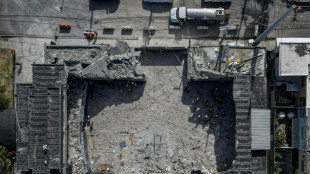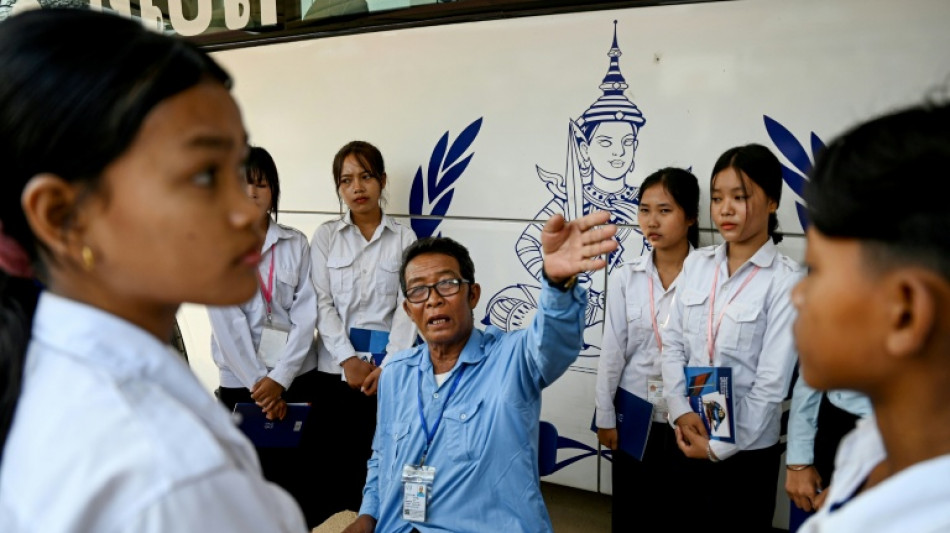
-
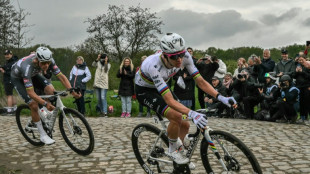 Cycling fan admits throwing bottle at Van der Poel was 'stupid'
Cycling fan admits throwing bottle at Van der Poel was 'stupid'
-
Troubled Red Bull search for path back to fast lane
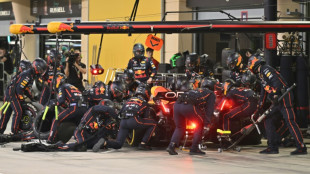
-
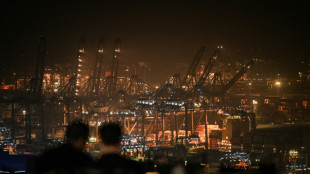 China's forecast-beating growth belies storm clouds ahead: analysts
China's forecast-beating growth belies storm clouds ahead: analysts
-
ASML CEO sees growing economic 'uncertainty' from tariffs

-
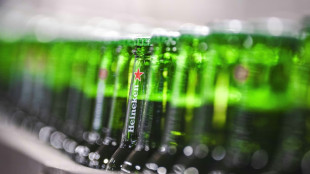 Heineken beer sales dip, tariffs add to uncertainty
Heineken beer sales dip, tariffs add to uncertainty
-
Rehab centre for Russian veterans from Ukraine fills up
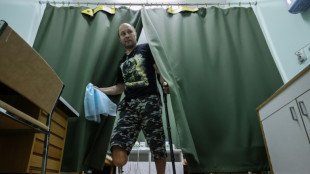
-
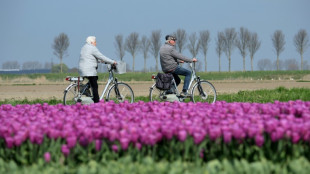 Dutch flower industry grasps thorny pesticide issue
Dutch flower industry grasps thorny pesticide issue
-
Solar boom counters power shortages in Niger

-
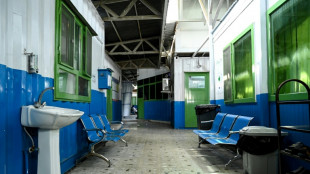 Malnourished children in Afghanistan at 'high risk of dying' without US aid
Malnourished children in Afghanistan at 'high risk of dying' without US aid
-
Skating comeback queen Liu says she can get even better for Olympics

-
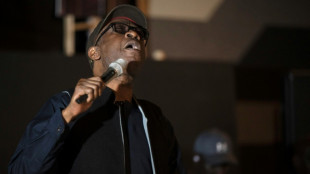 'Let's rock': world music icon Youssou N'Dour back on the road
'Let's rock': world music icon Youssou N'Dour back on the road
-
Mackerel and missiles: EU-UK defence deal snags on fish
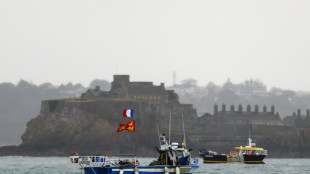
-
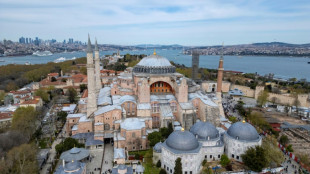 Istanbul's Hagia Sophia prepares for next big quake
Istanbul's Hagia Sophia prepares for next big quake
-
'Magician' Chahal casts spell with IPL heroics
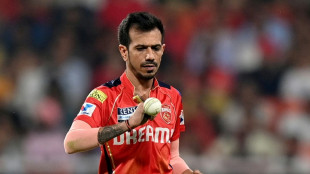
-
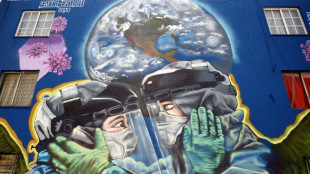 WHO countries strike landmark agreement on tackling future pandemics
WHO countries strike landmark agreement on tackling future pandemics
-
Kerr salutes Harvard defiance over Trump after Warriors win

-
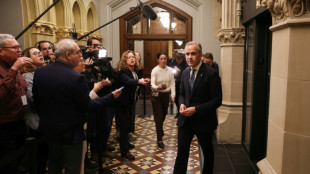 Canada party leaders hold high-stakes debate two weeks from vote
Canada party leaders hold high-stakes debate two weeks from vote
-
As war grinds on, Ukraine's seniors suffer

-
 ASML CEO sees 'increased macro uncertainty' from tariffs
ASML CEO sees 'increased macro uncertainty' from tariffs
-
Pope leaves faithful guessing over Easter appearances

-
 Butler, 'Batman' Curry shine as Warriors down Grizzlies to reach playoffs
Butler, 'Batman' Curry shine as Warriors down Grizzlies to reach playoffs
-
Skating 'Quad God' Malinin ready for Olympic favourite tag
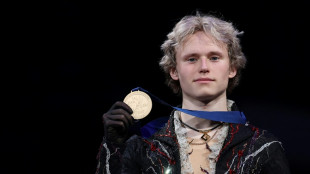
-
 Toppmoeller has ascendant Frankfurt challenging their limits
Toppmoeller has ascendant Frankfurt challenging their limits
-
Cambodia's Chinese casino city bets big on Beijing

-
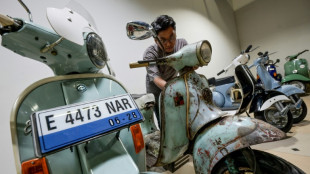 Vespa love affair: Indonesians turn vintage scooters electric
Vespa love affair: Indonesians turn vintage scooters electric
-
Europe seeks to break its US tech addiction

-
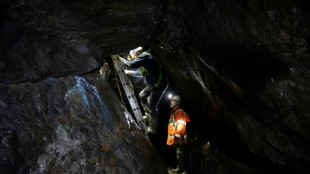 Long-abandoned Welsh mine revived as gold prices soar
Long-abandoned Welsh mine revived as gold prices soar
-
UK's top court to rule on how to define a 'woman'
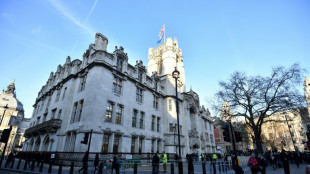
-
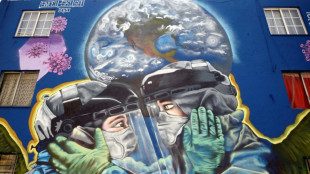 WHO countries reach landmark agreement on tackling future pandemics
WHO countries reach landmark agreement on tackling future pandemics
-
Stocks struggle again as Nvidia chip curb warning pops calm
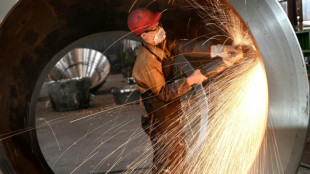
-
 China's economy beats forecasts ahead of Trump's 'Liberation Day'
China's economy beats forecasts ahead of Trump's 'Liberation Day'
-
China's economy beat forecasts in first quarter ahead of Trump's 'Liberation Day'

-
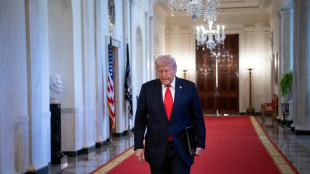 Trump orders critical minerals probe that may bring new tariffs
Trump orders critical minerals probe that may bring new tariffs
-
Onana faces date with destiny as Man Utd chase Lyon win
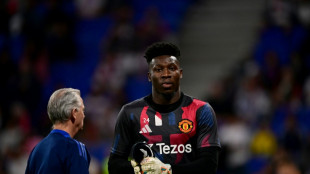
-
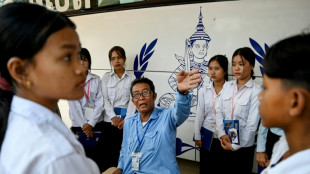 Lessons in horror with Cambodia's Khmer Rouge tribunal
Lessons in horror with Cambodia's Khmer Rouge tribunal
-
Pandemic agreement: key points

-
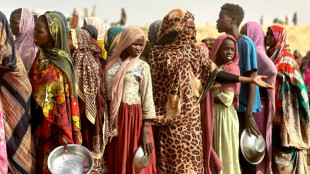 Paramilitaries declare rival government as Sudan war hits two-year mark
Paramilitaries declare rival government as Sudan war hits two-year mark
-
Landmark agreement reached at WHO over tackling future pandemics
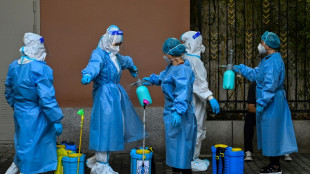
-
 'La bolita,' Cuban lottery offering hope in tough times
'La bolita,' Cuban lottery offering hope in tough times
-
'Toxic beauty': Rise of 'looksmaxxing' influencers

-
 Facebook added 'value' to Instagram, Zuckerberg tells antitrust trial
Facebook added 'value' to Instagram, Zuckerberg tells antitrust trial
-
Trump signs order aimed at lowering drug prices

-
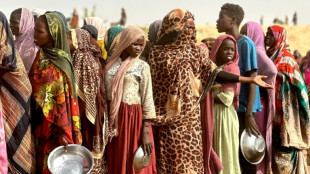 Paramilitaries declare rival government as Sudan war enters third year
Paramilitaries declare rival government as Sudan war enters third year
-
Nvidia expects $5.5 bn hit as US targets chips sent to China

-
 Emery targets 'next step' for Aston Villa after Champions League heroics
Emery targets 'next step' for Aston Villa after Champions League heroics
-
'Gap too big' for Dortmund after first leg, says Guirassy

-
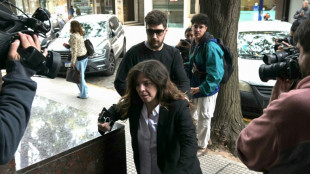 Maradona's daughter says doctors could have prevented his death
Maradona's daughter says doctors could have prevented his death
-
Barcelona 'justified' semi-final spot despite Dortmund loss, says Flick
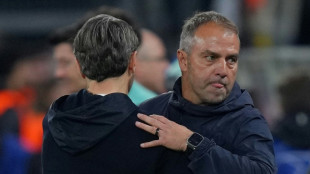
-
 'We thought the tie was over': Dembele admits PSG switched off against Villa
'We thought the tie was over': Dembele admits PSG switched off against Villa
-
Wine consumption falls heavily into the red


Lessons in horror with Cambodia's Khmer Rouge tribunal
Sheltering in the shade of a bus repurposed into a mobile museum, Mean Loeuy tells a group of children about the hell he went through in a Khmer Rouge labour camp.
"At the beginning we shared a bowl of rice between 10 people," recounts the 71-year-old man who lost more than a dozen family members during Cambodia's bloodiest era.
"By the end, it was one grain of rice with a splash of water in the palm of our hands," he says, describing the camp as "like a prison without walls".
The children look on with expressions ranging from nonplussed to horror.
Mean Loeuy is one of a handful of survivors supporting the latest project of the Extraordinary Chambers in the Courts of Cambodia (ECCC), the UN-sponsored tribunal that delivered its last verdict on Pol Pot's brutal regime in September 2022 before wrapping up its trials.
Since January last year, a team led by a lawyer has travelled around Cambodia teaching schoolchildren about the government it ruled as genocidal, sharing 20 years' worth of evidence and testimony from victims such as Mean Loeuy.
The capital Phnom Penh fell to the Khmer Rouge 50 years ago on Thursday, but now two-thirds of Cambodia's population are under 30.
Most grew up without living through the horrors of Pol Pot's rule between 1975 and 1979, nor the 20 years of conflict that followed.
Many young people have no more than an inkling of the grimmest period of their country's history -- one still haunted by the deaths of around two million people through starvation, disease, forced labour or murder.
- Human skulls -
In a high school courtyard in Phnom Srok in the nation's northwest, dozens of children squeeze into the air-conditioned vehicle -- a bus specially adapted to hold interactive history classes, with comics, iPads and other resources.
About 10 kilometres (six miles) away lies the Trapeang Thma reservoir where Mean Loeuy laboured, one of the Khmer Rouge's most notorious projects, accounting for thousands of worker fatalities.
At a Buddhist temple in the town, the skulls of victims of the Khmer Rouge line the shelves.
But Mouy Chheng, 14, admits she had difficulty believing the "brutality" of the ultra-Maoist government that her parents had told her little about.
"I was not born under the Khmer Rouge. I came to learn here... and understand the difficulties under the previous regime. Now I understand a lot more," she tells AFP.
The educational initiative reached more than 60,000 children and teenagers at 92 institutions in 2024, according to the ECCC, and aims to visit 100 schools this year.
In a classroom, lawyer Ven Pov passes a microphone around between 150 or so high school students.
"Why wasn't Pol Pot tried?", "why weren't (convicted Khmer Rouge cadres) given the death penalty?", "how is it possible that famine killed so many?", they ask one after another.
The 56-year-old Ven Pov tries his best to answer their questions but admits he still wonders why the Khmer Rouge committed such atrocities.
"We do not have answers," he says. "We need to do more research."
- 'Symbolic legacy' -
Back in the capital, the ECCC preserves hundreds of thousands of Khmer Rouge documents that are open to researchers and anyone interested.
Of the scores of ageing former leaders of the ultra-Maoist movement living freely in Cambodia, the ECCC convicted only three.
Former prime minister Hun Sen has pushed for peace and social cohesion, but critics say he sought to exploit the hybrid Cambodian-international tribunal to avoid prosecuting more Khmer Rouge cadres -- of which he was once one.
"Justice and reconciliation go hand in hand," says Ven Pov, who attributes the lack of trials to a widespread desire for unity.
"Victims want justice, but they also want peace, national unity and reconciliation."
Nonetheless, Timothy Williams, a professor at Bundeswehr University in Munich, says "transitional justice isn't just about those who committed the crimes, it's also a symbolic legacy for society".
The educational bus could have started its tours 15 years ago, he said, but added: "It's important at a time marked by the strengthening of authoritarian power.
"The lessons of the past are crucial here."
K.Sutter--VB

